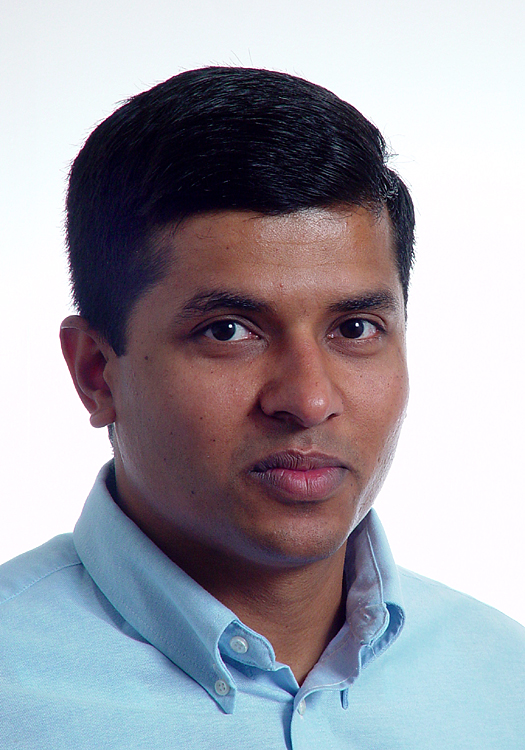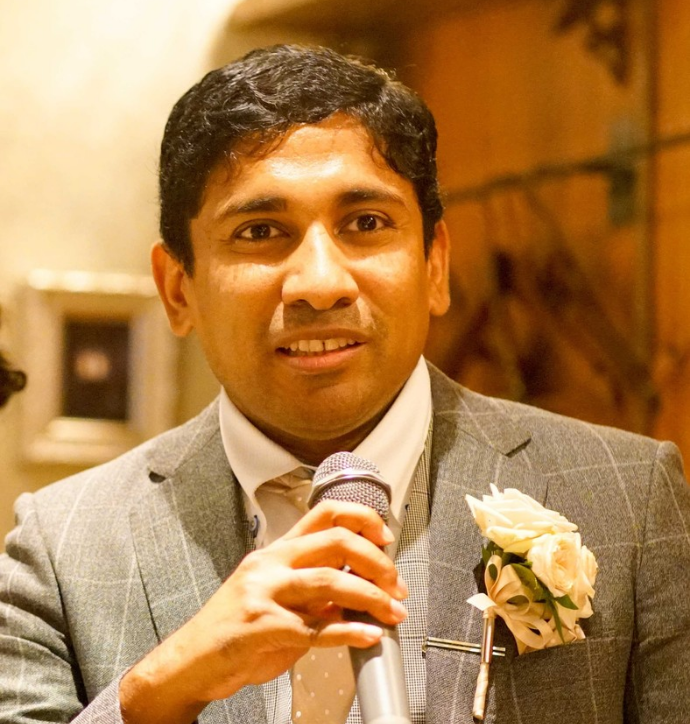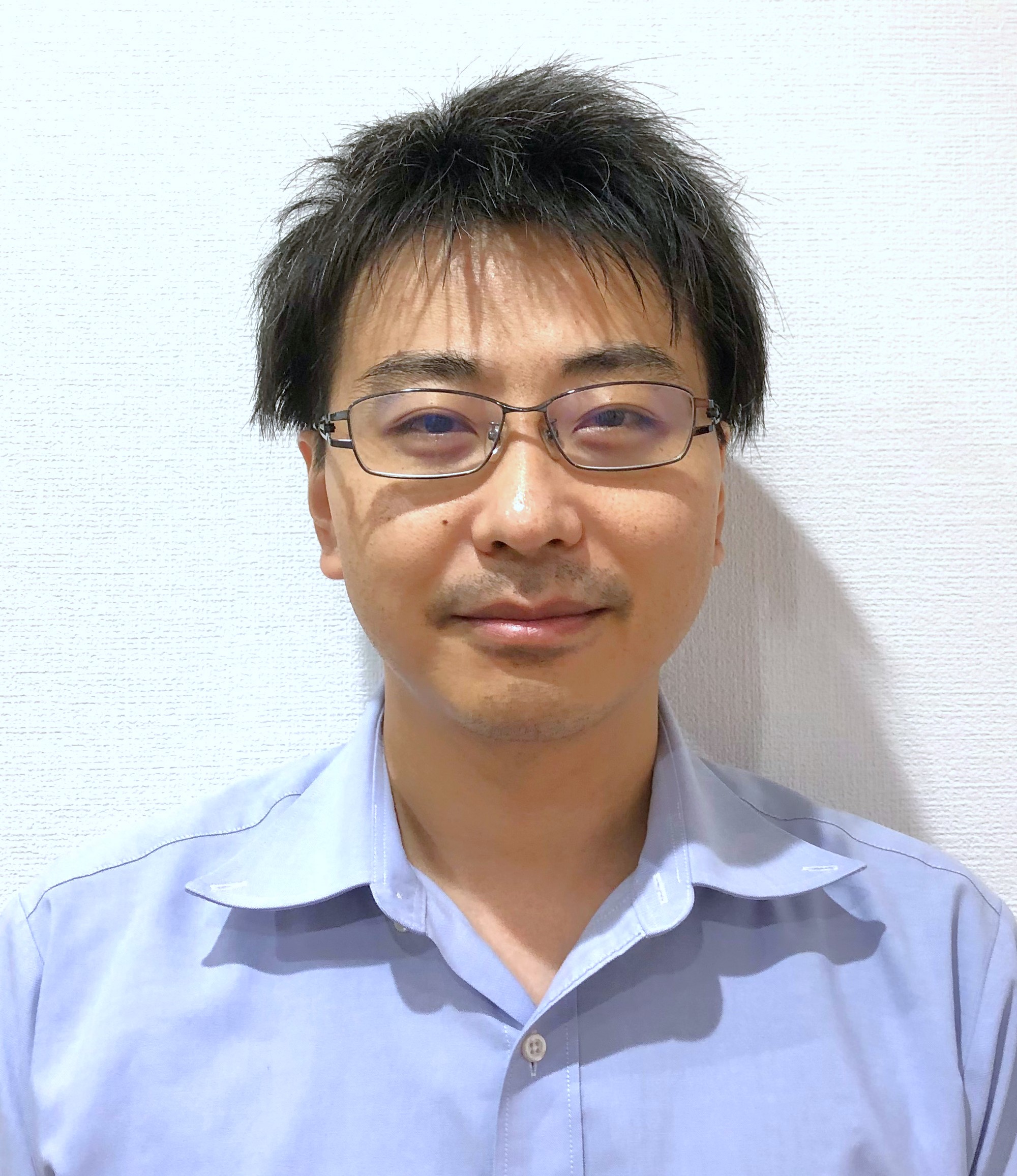Keynote Speakers & Invited Speakers
Keynote Speaker I

Prof. Gaurav Sharma (IEEE Fellow, SPIE fellow)
University of Rochester, USA
Gaurav Sharma is
with the University of Rochester, where he is a
Professor in the Department of Electrical and Computer
Engineering , Department of Computer Science , and
Department of Biostatistics and Computational Biology.
He is also a Distinguished Researcher in Center of
Excellence in Data Science (CoE) at the Goergen
Institute for Data Science . From 2008-2010, he served
as the Director for the Center for Emerging and
Innovative Sciences (CEIS), a New York state supported
center for promoting joint university-industry research
and technology development, which is housed at the
University of Rochester. From 1996 through 2003, he was
with Xerox Research and Technology in Webster, NY first
as a member of research and technology staff and then as
a Principal Scientist and Project Leader. He received
the Ph.D. in Electrical and Computer Engineering from
North Carolina State University, Raleigh, NC, and
masters degrees in Applied Mathematics from NCSU and in
Electrical Communication Engineering from the Indian
Institute of Science, Bangalore, India. He received his
bachelor of engineering degree in Electronics and
Communication Engineering from Indian Institute of
Technology, Roorkee (formerly, Univ. of Roorkee).
Dr. Sharma is a fellow of the IEEE, a fellow of SPIE --
the international society for optics and photonics, and
a fellow of the Society for Imaging Science and
Technology (IS&T). He is also an elected member of Sigma
Xi, the scientific research society and the Phi Kappa
Phi and Pi Mu Epsilon honor societies. Dr. Sharma is a
Member-at-Large on IEEE Signal Processing Society Board
of Governors. He was a 2020-21 Distiguished Lecturer of
the IEEE Signal Processing Society and has previously
served as an SPIE Visiting Lecturer . Dr. Sharma served
as the Editor-in-Chief for the IEEE Transactions on
Image Processing from 2018-2020 and as the
Editor-in-Chief for the Journal of Electronic Imaging
from 2011 through 2015. Dr. Sharma is a member of the
Editorial Board of the Proceedings of the IEEE and has
previously served and as an associate editor for the
Journal of Electronic Imaging, for the IEEE Transactions
on Information Forensics and Security and for the IEEE
Transactions on Image Processing. He is the editor of
the "Digital Color Imaging Handbook" published by CRC
press. Dr. Sharma served as the 2010-2011 chair for the
Image, Video, and Multi-dimensional Signal Processing
Technical Committee, of the IEEE Signal Processing
Society and as the 2007 Chair of the IEEE Rochester
Section. He is also a past member of the IEEE Spectrum
Editorial Advisory Board, the Information Forensics and
Security Technical Committee , the Multimedia-Signal
Processing Technical Committee of the IEEE SPS, and of
the Industry DSP Technology Standing Committee, of the
IEEE Signal Processing Society. He was the Chair and
Co-Chair, respectively, for the 2013 and 2012 IS&T/SPIE
Electronic Imaging (EI) Symposia and Technical Program
Co-Chair for the 2012 and 2016 editions of the IEEE
International Conference on Image Processing (ICIP). Dr.
Sharma is a member of the IEEE Signal Processing and
Communications Societies of the IEEE. He serves on the
IEEE Publication Services Product Board (PSPB) and is
the current chair of the IEEE PSPB Strategic Planning
Committee. From 2015 through 2017 he served as the
Treasurer for the IEEE PSPB and in 2017 and 2018 he
served as the Chair of the IEEE Conference Publications
Committee (CPC). In 2015 and 2016, he served on the IEEE
Signal Processing Society's Conferences Board and its
Executive subcommittee.
Keynote Speaker II
.jpg)
Prof. Kenji Suzuki
Institute of Integrated Research at Institute of Science
Tokyo, Japan ( the merger between Tokyo Medical and
Dental University and Tokyo Institute of Technology )
Kenji Suzuki, Ph.D. (Nagoya University) worked at Hitachi Medical Corp, Aichi Prefectural University, Japan, as a faculty member, in Department of Radiology, University of Chicago, as Assistant Professor, and Medical Imaging Research Center, Illinois Institute of Technology, as Associate Professor (Tenured). He is currently a Professor (Tenured) & Director of Biomedical Artificial Intelligence Research Unit in Institute of Innovative Research, Tokyo Institute of Technology, Japan. He published more than 395 papers (including 125 peer-reviewed journal papers). He has been actively researching on deep learning in medical imaging and AI-aided diagnosis in the past 25 years, especially his early deep-learning model was proposed in 1994. His papers were cited more than 16,000 times, and his h-index is 63. He is inventor on 38 patents (including ones of earliest deep-learning patents), which were licensed to several companies and commercialized. He published 15 books and edited 16 journal special issues. He has been awarded numerous grants including NIH, NEDO, and JST grants, totaling $17M. He serves as Editors of 34 leading international journals including Pattern Recognition. He chaired 114 international conferences. He received 27 awards, including 3 Best Paper Awards in leading journals. His research interests include Artificial intelligence, Deep learning, Machine learning, AI-aided system, Computer-aid diagnosis, Medical image analysis, Medical image processing, Data science.
Invited Speakers
Invited Speaker I

Prof. Chinthaka Premachandra, Shibaura Institute of Technology, Japan
Chinthaka Premachandra (Senior
Member, IEEE) was born in Sri Lanka. He received the
B.Sc. and M.Sc. degrees from Mie University, Tsu, Japan,
in 2006 and 2008, respectively, and the Ph.D. degree
from Nagoya University, Nagoya, Japan, in 2011. From
2012 to 2015, he was an Assistant Professor with the
Department of Electrical Engineering, Faculty of
Engineering, Tokyo University of Science, Tokyo, Japan.
From 2016 to 2017, he was an Assistant Professor with
the Department of Electronic Engineering, School of
Engineering, Shibaura Institute of Technology, Tokyo,
where he was an Associate Professor, from 2018 to 2022.
In 2022, he was promoted to a Professor with the
Department of Electronic Engineering, Graduate School of
Engineering, Shibaura Institute of Technology, where he
is currently the Manager of the Image Processing and
Robotic Laboratory. His research interests include AI,
UAV, image processing, audio processing, intelligent
transport systems (ITS), and mobile robotics.
He is a member of IEEE, IEICE, Japan; SICE, Japan; RSJ,
Japan; and SOFT, Japan. He received the IEEE SENSORS
LETTERS Best Paper Award from the IEEE Sensors Council
in 2022 and the IEEE Japan Medal from the IEEE Tokyo
Section in 2022. He also received the FIT Best Paper
Award and the FIT Young Researchers Award from IEICE and
IPSJ, Japan, in 2009 and 2010, respectively. He has
served as a steering committee member and an editor for
many international conferences and journals. He is the
Founding Chair of the International Conference on Image
Processing and Robotics (ICIPRoB), which is technically
co-sponsored by IEEE. He is currently serving as an
Associate Editor for IEEE Robotics and Automation
Letters (R-AL) and IEICE Transactions on Information and
Systems.
Invited Speaker II
Senior Associate Professor Yoichi TOMIOKA, The University of Aizu, Japan
He received the B.E., M.E., and D.E. degrees from the Tokyo Institute of Technology, Tokyo, Japan, in 2005, 2006, and 2009, respectively. He was a Research Associate with the Tokyo Institute of Technology until 2009. He was an Assistant Professor with the Division of Advanced Electrical and Electronics Engineering, Tokyo University of Agriculture and Technology until 2015. He was an Associate Professor with the School of Computer Science and Engineering, The University of Aizu until 2018, where he has been a Senior Associate Professor since 2019. In recognition of his contributions to the research community, he was selected as an Outstanding TPC Member at the Design Automation Conference (DAC) 2025. His research interests include image processing, hardware acceleration, efficient and fault-tolerant AI systems, electrical design automation, and combinational algorithms.
Invited Speaker III

Associate Professor Hossain Md Shakhawat, Kochi University of Technology, Japan
Hossain Md Shakhawat is an Associate Professor at the
School of Informatics, Kochi University of Technology
(KUT), Japan, where he leads the AI for Medical Imaging
(AIM) Laboratory. Dr. Hossain received his Ph.D. from
Tokyo Institute of Technology, Japan, in collaboration
with Memorial Sloan Kettering Cancer Center (MSK), USA.
He subsequently worked as a Research Fellow at MSK and
was offered a position as a Senior Researcher in Machine
Learning for Medical Imaging at Oxford University, UK.
He has developed a clinically validated HER2 grading
system for breast cancer patients at MSK, which was
recognized by the Association of Pathology Informatics
(API), USA. His research focuses on developing
clinically usable AI-powered solutions for medical image
analysis to improve diagnostic accuracy and support
clinical decision-making. Dr. Hossain is a member of
IEEE and the Association of Pathology Informatics, USA.
